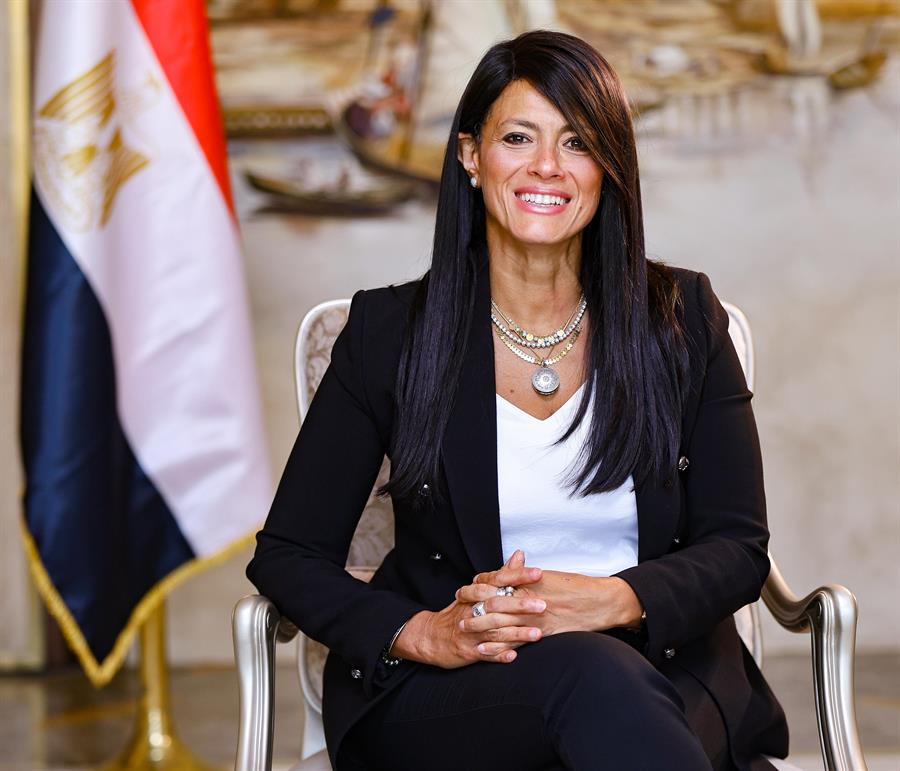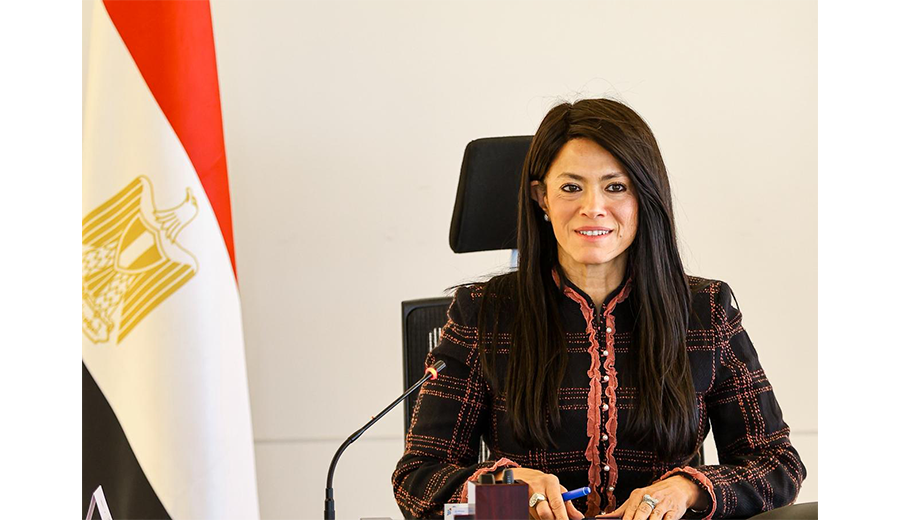The Ministry of Planning, Economic Development, and International Cooperation, together with JICA, launches a joint report on Egyptian-Japanese relations entitled “Egypt-JICA Cooperation: 70 Years of Friendship and Trust”
22 August 2025
At the Tokyo International Conference on African Development (TICAD9):
The Ministry of Planning, Economic Development, and International Cooperation, together with JICA, launches a joint report on Egyptian-Japanese relations entitled “Egypt-JICA Cooperation: 70 Years of Friendship and Trust”
Al-Mashat: Egypt–Japan relations are built on mutual understanding and a shared commitment to development.
Our cooperation portfolio with Japan covers education, health, culture, and capacity building, aligned with Egypt’s national priorities.
We are exploring new avenues of partnership focusing on private sector empowerment, innovation-driven solutions, and technology localization.
Egypt–Japan relations set a regional and global example of effective development cooperation grounded in shared interests.
JICA President: Egypt holds a pivotal position as Japan’s gateway to Africa and a key bridge between Africa and the Arab world.
We continue our partnership with the Egyptian government across multiple sectors to contribute to the country’s development journey.
The report highlights 70 years of constructive partnership in development cooperation and details the portfolio of joint projects between both countries.
Coinciding with Egypt’s participation at the Tokyo
International Conference on African Development (TICAD9), represented by a
high-level delegation led by Prime Minister Dr. Mostafa Madbouly on behalf of
H.E. President Abdel Fattah El-Sisi, the Ministry of Planning, Economic
Development and International Cooperation, in collaboration with the Japan International
Cooperation Agency (JICA), launched a joint report marking 70 years of
partnership under the title “Egypt-JICA Cooperation: 70 Years of Friendship and
Trust”
The report—jointly prepared by the Ministry and
JICA—highlights seven decades of strong cooperation between Egypt and Japan and
showcases the impact of this partnership on Egypt’s development cooperation
portfolio with JICA. It documents JICA’s contributions to financing pioneering
projects across education, health, transport, energy, and capacity building.
Landmark projects include the Egypt–Japan University of Science and Technology
(E-JUST), the Grand Egyptian Museum, the Cairo Opera House, and Cairo Metro
Line 4.
In her foreword to the report, H.E. Dr. Rania Al-Mashat,
Minister of Planning, Economic Development, and International Cooperation,
affirmed that by commemorating the 70th anniversary of Egyptian-Japanese
relations, “we are not only celebrating decades of continuous ties but a
strategic partnership looking toward a sustainable future, built on mutual
understanding, policy alignment, and a shared commitment to achieving inclusive
and sustainable development.”
She further explained that Egypt’s cooperation with JICA,
supported by various Japanese institutions, has resulted in a comprehensive
development cooperation portfolio aligned with Egypt’s Vision 2030 and
government priorities. This includes investments in human capital and
infrastructure development. Dr. Al-Mashat stressed that, in light of the recent
upgrading of bilateral relations, Egypt is exploring new dimensions of
partnership, such as localizing industry and technology, and enhancing private
sector participation, in line with government priorities. She underscored that
Egypt–Japan cooperation stands as a regional and international model for
effective, mutually beneficial development partnership.
For his part, Dr. Akihiko Tanaka, President of JICA,
expressed appreciation for the mutual trust and notable achievements realized
throughout the partnership with Egypt. He noted that the cooperation journey,
which began in 1954, has flourished over decades, encompassing projects such as
the Cairo University Pediatric Hospital, the Cairo Opera House, and E-JUST.
Dr. Tanaka affirmed that Egypt plays a pivotal role as
Japan’s gateway to Africa and as a vital bridge connecting Africa and the Arab
world. He stressed JICA’s continued commitment to partnering with the Egyptian
government across multiple sectors to contribute to the country’s development
efforts.
According to the report, Egypt’s cooperation portfolio with
JICA amounts to approximately USD 2.4 billion in grants and technical
assistance since the beginning of cooperation, in addition to concessional
financing worth USD 7.2 billion. The portfolio encompasses investments in
cultural heritage preservation, inclusive growth, and landmark infrastructure
projects.
The report further highlights how Egypt’s national
priorities align with Japan’s Official Development Assistance (ODA) policy,
which focuses on: promoting sustainable economic growth, advancing education
and human capacity development, supporting the green transition, and fostering
social inclusion. It also underscores Egypt’s South–South cooperation role,
noting that since 1985, Egypt has trained more than 7,100 individuals from 59
countries with JICA’s support.
The report also noted landmark Egyptian-Japanese projects,
such as the Peace Bridge over the Suez Canal (2001), the Gulf of El-Zayt Wind
Farm (2018 – 220 MW), the Health Partnership—supporting Egypt since the 1970s
including the construction of Abu El-Reesh Children’s Hospital, the Egypt-Japan
Education Partnership (EJEP) launched in 2016, the Abe Initiative enabling
African and Egyptian youth to study and work in Japan, and the JICA Volunteer
Program, where more than 350 volunteers have worked in Egypt since 1996 in
education, healthcare, and social services, in addition to Cairo Metro Line 4 –
Phase I (still under implementation).
The report concludes by outlining three main pillars of
Egypt–Japan cooperation:
1. Sustainable Economic Growth with
support for transport, infrastructure, energy, and inclusive growth.
2. Social Inclusion and Quality of Life
with support for education, health, and water management.
3. Green Transition and Environmental
Sustainability with support for renewable energy, sustainable agriculture, and
climate change mitigation.
Read the full report here:









